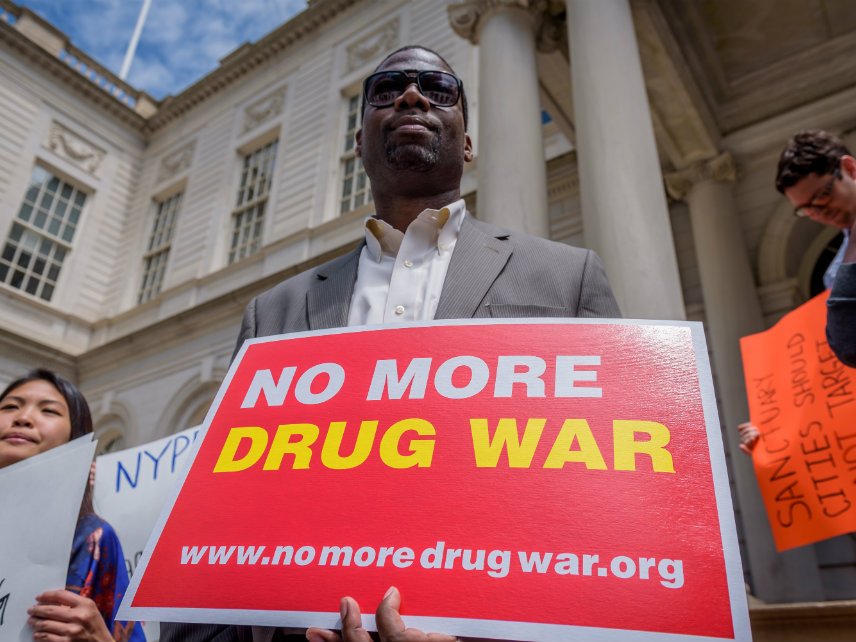Legalizing All Drugs Would Boost Local, State, Federal Budgets
A new study shows that over $106 billion could be added to the government's budget if drugs are legalized.

Federal, state, and local governments could save billions of dollars by doing nothing—that is, by ending drug prohibition and no longer spending money fighting the war on drugs.
So says a new study from Jeffrey Miron, a Harvard economist and the director of economic studies at the Cato Institute. Drug prohibition is enormously expensive, and Miron finds that full legalization could leave over $106 billion in the government's coffers. State and local governments spend $29.37 billion on prohibition efforts, and the federal government spends another $18.47 billion. Meanwhile, Miron calculates that a legal drug trade could bring in additional tax revenues of $58.81 billion.
If anything, that understates the potential economic gains. There's more to the economy than government budgets, after all. About 789,800 Americans are currently locked up for drug-related offenses. Putting those people back into the workforce would surely catalyze economic growth.
The tide has already turned on pot prohibition. A Pew poll this year showed that 61 percent of America now supports the legalization of marijuana, up from 16 percent just three decades ago. But the "majority of budgetary gains," writes Miron, "would likely come from legalizing heroin and cocaine." The war on drugs involves much more than marijuana, and we can't stop with cannabis. Drug prohibition doesn't just lead to unquantifiable amounts of injustice—it's simply too expensive to continue.


Show Comments (45)